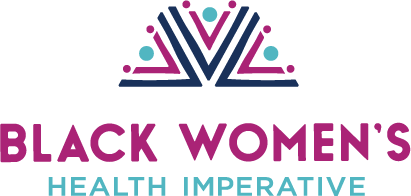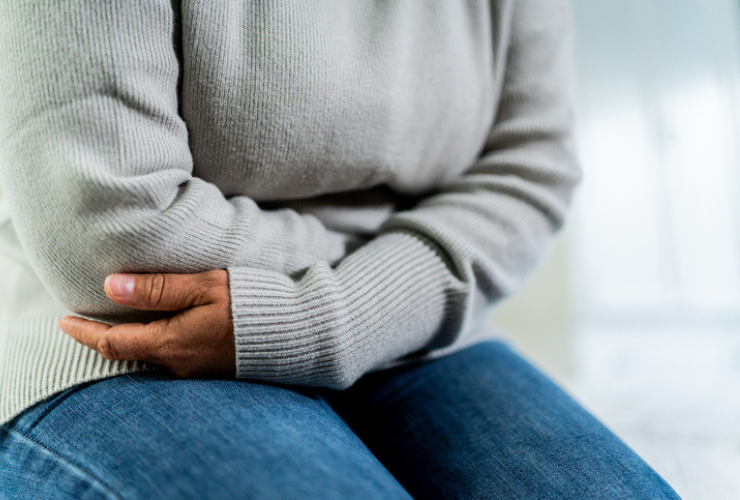Polycystic Ovary Syndrome (PCOS). Have you ever heard of it? Do you know what it is? Do you know if you have it?
Why is this condition such a secret when between 5% and 10% of women of reproductive age (18–44) are affected, and as many as 5 million women in the U.S. may suffer from it? Even in some of the material I read, women refer to it as their “little secret.” Not good!
Since I live and breathe diabetes prevention, I was conducting research, trying to better understand our risks as Black women for getting gestational diabetes– which by the way increases you and your child’s risk for getting type 2 diabetes– and I stumbled across information on PCOS. According to the National Institute of Child Health and Human Development, PCOS may affect girls as young as 11 who haven’t even had their first period. Mothers need to know this.
Based on what I read, women experiencing PCOS symptoms may be so embarrassed they don’t even mention them to their doctor. They simply remain silent. When there is silence about issues that affect us personally, the silence only increases our sense of shame, embarrassment, and misunderstanding about what we are experiencing. And, I think we can almost assume that if this condition affects five million women, millions of them are Black women. During an interview with Essence, Chrisette Michele talked about her challenge with PCOS and its association with her weight.
So, let’s remove the shame! If PCOS is your reality, hopefully by sharing what I have learned (below) will help you; and I encourage you to share the information with other Black women. It is difficult to describe exactly what PCOS is because it consists of a “group” of symptoms that are all related in some way. But here are some of the indicators:
- PCOS is a “weight-related” condition, with about 80% of women with PCOS considered “obese.”
- Doctors tend to prescribe Metformin because PCOS can increase your insulin level or cause you to become insulin resistant, meaning you aren’t able to use the insulin you produce effectively. These symptoms often result in women being misdiagnosed with diabetes. And…we know that insulin resistance can make it harder for women to lose weight.
- Even when women are told they have it, many doctors are not able to explain exactly what it is, what caused it, or what can be done about it. So, women are learning about this condition via the internet, feeling isolated and alone to figure it all out for themselves.
- One in ten women have PCOS and at least 50% of them don’t even know they have it.
- One of the first symptoms is often irregular menstrual cycles. Some women may go for months without having a cycle or have a couple of months. Doctors usually prescribe birth control for these symptoms.
- Then there are cosmetic symptoms including changes in the skin and/or severe acne. Hair loss or hair on areas of the body that are abnormal for females is another cosmetic symptom. This is caused by elevated levels of testosterone and for many women reinforces their sense of shame.
- Infertility, low sex drive, mood swings, anxiety, and depression are very common.
- Women with PCOS, particularly when its symptoms are not controlled, may also be at greater risk for:
- Heart Disease
- Endometrial Cancer
- Type 2 Diabetes
- High Blood Pressure
PCOS, like many other conditions, can be managed with positive lifestyle changes, including making healthier food choices (shopping, preparing and eating) and getting at least 150 minutes of physical activity each week. And it is especially important to practice self-care and ask for support. If you are having some of the symptoms mentioned, talk to your doctor about them if you haven’t already and find a support group near you.
In my search for more information, I discovered this website: Hello PCOS. Chris Joseph was diagnosed as a grad student in 2011. She immediately left her doctor’s appointment and started searching Google for answers and found very little. Chris wants to make sure other women diagnosed with PCOS have a place to turn for information and support.
Do you have a story to share? We would love to hear from you. Send us your story to cyl2@bwhi.org.
 Dr. Angela Ford joined the Black Women’s Health Imperative (BWHI) as the Program Manager for Change Your Lifestyle. Change Your Life. (CYL² ) in January 2012, after retiring from the University of Pittsburgh. Angela oversees CYL²’s strategic direction and is responsible for guiding the program toward increasing the availability of CYL² in underserved communities, enrolling and sustaining participants in the program, increasing clinician screening, detection and referral of prediabetes, and helping to build the capacity of our program partners to sustain the program.
Dr. Angela Ford joined the Black Women’s Health Imperative (BWHI) as the Program Manager for Change Your Lifestyle. Change Your Life. (CYL² ) in January 2012, after retiring from the University of Pittsburgh. Angela oversees CYL²’s strategic direction and is responsible for guiding the program toward increasing the availability of CYL² in underserved communities, enrolling and sustaining participants in the program, increasing clinician screening, detection and referral of prediabetes, and helping to build the capacity of our program partners to sustain the program.


